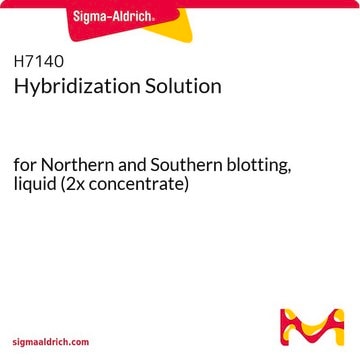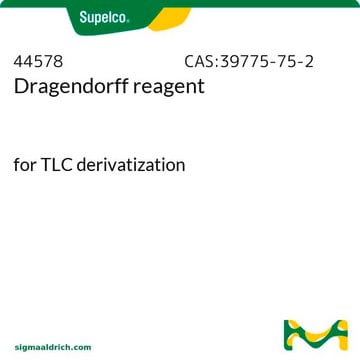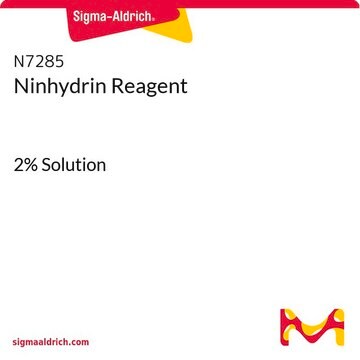M1942
Molybdänblau-Sprühreagenz
liquid
About This Item
Empfohlene Produkte
product name
Molybdänblau-Sprühreagenz,
Beschreibung
1.3% molydbenum oxide in 4.2 M sulfuric acid
Molybdenum Blue reagent
Form
liquid
Methode(n)
thin layer chromatography (TLC): suitable
Anwendung(en)
diagnostic assay manufacturing
hematology
histology
Lagertemp.
room temp
Allgemeine Beschreibung
Anwendung
Signalwort
Danger
H-Sätze
Gefahreneinstufungen
Carc. 2 - Eye Dam. 1 - Met. Corr. 1 - Skin Corr. 1A
Lagerklassenschlüssel
8B - Non-combustible corrosive hazardous materials
WGK
WGK 1
Flammpunkt (°F)
Not applicable
Flammpunkt (°C)
Not applicable
Persönliche Schutzausrüstung
Faceshields, Gloves, Goggles, type ABEK (EN14387) respirator filter
Analysenzertifikate (COA)
Suchen Sie nach Analysenzertifikate (COA), indem Sie die Lot-/Chargennummer des Produkts eingeben. Lot- und Chargennummern sind auf dem Produktetikett hinter den Wörtern ‘Lot’ oder ‘Batch’ (Lot oder Charge) zu finden.
Besitzen Sie dieses Produkt bereits?
In der Dokumentenbibliothek finden Sie die Dokumentation zu den Produkten, die Sie kürzlich erworben haben.
Kunden haben sich ebenfalls angesehen
Unser Team von Wissenschaftlern verfügt über Erfahrung in allen Forschungsbereichen einschließlich Life Science, Materialwissenschaften, chemischer Synthese, Chromatographie, Analytik und vielen mehr..
Setzen Sie sich mit dem technischen Dienst in Verbindung.

